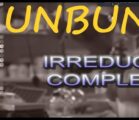Some recommended resources on Revelation.
Okay, so I’ve gone on record with my extreme dislike (hate would be a better word, but I’m feeling generous) of a lot of popular resources on Revelation. But there really is brilliant, beautiful work out there that will help you access the text better. This is a good thing, since accessing the text better means you access John’s world better, and accessing John’s world better means you are then exponentially more likely to land face down next to him in worship. I’m highlighting four such resources, all of which I love for very different reasons. Instead of an exhaustive list, I wanted to focus on unique, important books that represent the best in their respective approaches. For me, these are the best of the book.
First up is the Commentary on Revelation from the Two Horizons series from John Christopher Thomas and Frank Macchia. Sadly, it’s not available to the public as of yet, but I’ve got an advanced copy—and its worth salivating over. Given Thomas and Macchia’s Pentecostal approach, it was guaranteed to be unique. But equally important is that Thomas is one of the best Johannine scholars in the world today, and his reading of Revelation through the lens of the other texts that formed around John (the gospel of John and 1-3 John) make this both original and richly rewarding. It’s a gem that I believe will be a landmark in the field. Renovators will remember Thomas from our Comic Conflict documentary—and I do hope to bring him live sometime during this series. Such a robust scholar with such passion for God and the Church—he’s one of my heroes. If you are looking for a comprehensive, verse-by-verse commentary, I would recommend this forthcoming volume above any other.
 Second up is Richard Bauckham’s Theology of the Book of Revelation. Such high impact for such a slim volume, nobody demonstrates the structural beauty of Revelation like Bauckham. I recall reading it for the first time a decade ago on a plane with tears streaming down my face in worship. His ability to narrate the major themes of Revelation, his big picture view of the text, is unparalleled in both scope and clarity. It’s crucial work, absolutely critical to reading Revelation on its own terms, and packs more punch per line than any commentary I’ve read. Worth a slow, deliberate read despite is relatively quick pace.
Second up is Richard Bauckham’s Theology of the Book of Revelation. Such high impact for such a slim volume, nobody demonstrates the structural beauty of Revelation like Bauckham. I recall reading it for the first time a decade ago on a plane with tears streaming down my face in worship. His ability to narrate the major themes of Revelation, his big picture view of the text, is unparalleled in both scope and clarity. It’s crucial work, absolutely critical to reading Revelation on its own terms, and packs more punch per line than any commentary I’ve read. Worth a slow, deliberate read despite is relatively quick pace.
 Third is Eugene Peterson’s Reversed Thunder: St. John and the Praying Imagination. Peterson does the seemingly impossible and recaptures the deeply pastoral implications of John’s vision. It’s a wonder-restoring book, as Peterson’s ever fresh sense of language jars us into the sensory language of Revelation itself. It’s not a commentary and more like a collection of sermons really in that Peterson wants to deliver practical, pastoral wisdom from Revelaton for our daily lives. But I think that’s what John was up to all along. If you need your Biblical imagination reignited, Reversed Thunder is the place to look.
Third is Eugene Peterson’s Reversed Thunder: St. John and the Praying Imagination. Peterson does the seemingly impossible and recaptures the deeply pastoral implications of John’s vision. It’s a wonder-restoring book, as Peterson’s ever fresh sense of language jars us into the sensory language of Revelation itself. It’s not a commentary and more like a collection of sermons really in that Peterson wants to deliver practical, pastoral wisdom from Revelaton for our daily lives. But I think that’s what John was up to all along. If you need your Biblical imagination reignited, Reversed Thunder is the place to look.
 And then finally Robby Waddell’s excellent The Spirit of the Book of Revelation. It’s entirely unique in that it is surprisingly the first attempt to fully develop the role of the Spirit in John’s Apocalypse, despite the enormous role the Spirit plays in the text. His attempt to take the Spirit seriously for once in Revelation studies, as well as his provocative (and compelling) treatment of Revelation 11 as the interpretive key for the book are worth the price of admission.
And then finally Robby Waddell’s excellent The Spirit of the Book of Revelation. It’s entirely unique in that it is surprisingly the first attempt to fully develop the role of the Spirit in John’s Apocalypse, despite the enormous role the Spirit plays in the text. His attempt to take the Spirit seriously for once in Revelation studies, as well as his provocative (and compelling) treatment of Revelation 11 as the interpretive key for the book are worth the price of admission.
